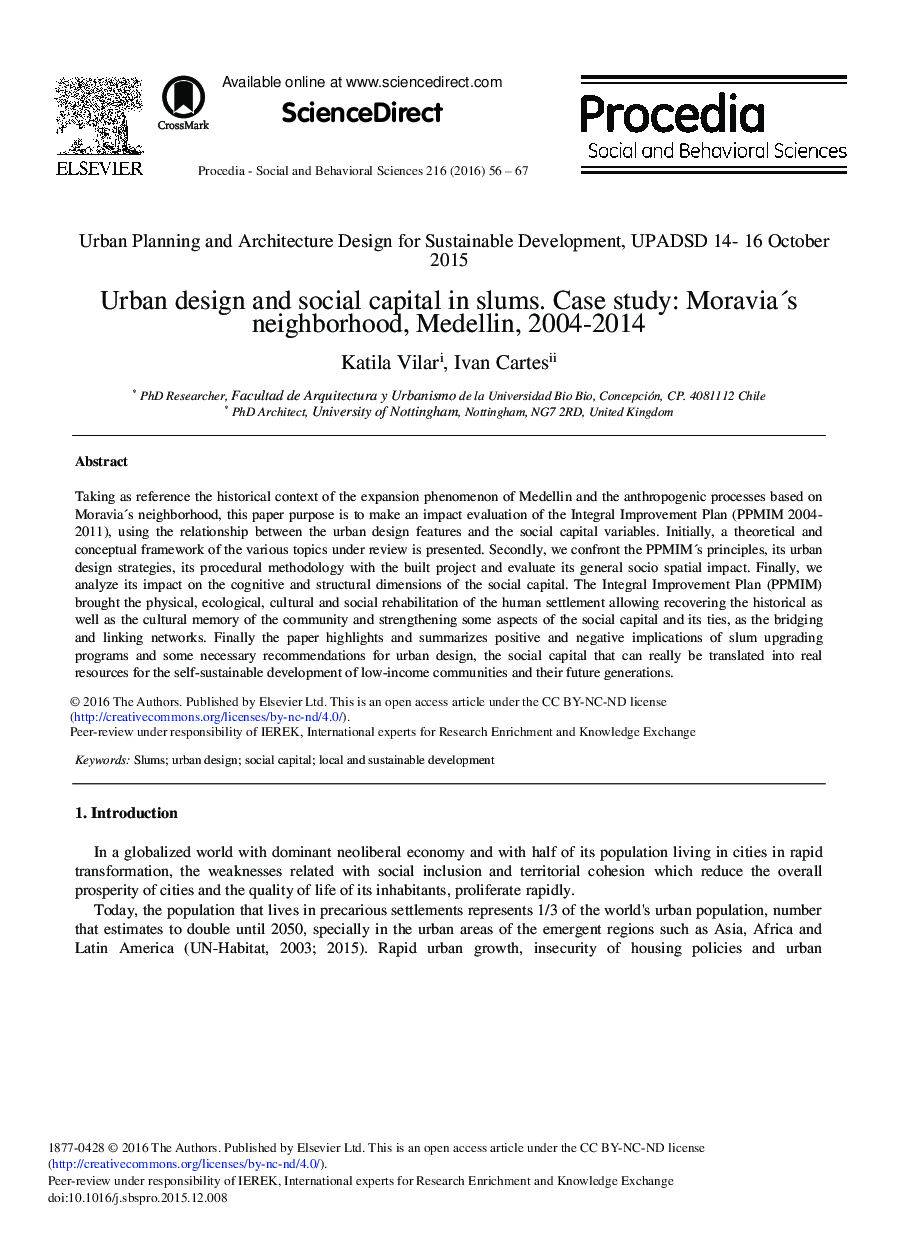| Article ID | Journal | Published Year | Pages | File Type |
|---|---|---|---|---|
| 1108715 | Procedia - Social and Behavioral Sciences | 2016 | 12 Pages |
Taking as reference the historical context of the expansion phenomenon of Medellin and the anthropogenic processes based on Moravia's neighborhood, this paper purpose is to make an impact evaluation of the Integral Improvement Plan (PPMIM 2004-2011), using the relationship between the urban design features and the social capital variables. Initially, a theoretical and conceptual framework of the various topics under review is presented. Secondly, we confront the PPMIM's principles, its urban design strategies, its procedural methodology with the built project and evaluate its general socio spatial impact. Finally, we analyze its impact on the cognitive and structural dimensions of the social capital. The Integral Improvement Plan (PPMIM) brought the physical, ecological, cultural and social rehabilitation of the human settlement allowing recovering the historical as well as the cultural memory of the community and strengthening some aspects of the social capital and its ties, as the bridging and linking networks. Finally the paper highlights and summarizes positive and negative implications of slum upgrading programs and some necessary recommendations for urban design, the social capital that can really be translated into real resources for the self-sustainable development of low-income communities and their future generations.
